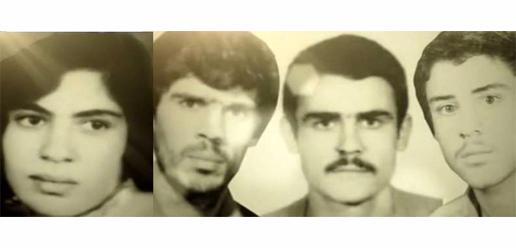On Tuesday, October 18, Iranian state media reported that courts had sentenced two Iranian-Americans, Siamak Namazi and his father Baquer Namazi, to ten years each in prison each.
Now Babak Namazi, Baquer’s son and Siamak’s brother, has issued a press release about the case.
In the message, he describes his family’s “shock and dismay” at the sentence, and writes that his father and brother each had their fates decided in a one-day court session that lasted only a few hours.
Iranian authorities have accused the two men of “cooperating with the hostile government of America,” but Iran’s judiciary has failed to make any official charges public.
Siamak, who is in his forties, is head of strategic planning at the United Arab Emirates-based Crescent Petroleum. He was first arrested in October 2015 while he was visiting family in Iran.
Baquer, who is now 80, was arrested in February 2016 when he flew to Iran to visit his son in prison.
In his press release, Babak emphasizes his extreme concern for his elderly father’s health, and notes that he has gone against his mother’s wishes by issuing a statement.
“I have to break our family’s silence,” he writes. M”y father has been handed practically a death sentence and it will be a criminal act by me, his only able son, not to fight for my father’s life and freedom as well as that of my brother.”
Baquer’s heath, he writes, is poor. His father suffers from a heart condition. “At his age and in his condition, it is highly doubtful that my father will survive any time in prison, let alone a 10 year unjust prison sentence.”
In recent years, there have been frequent reports of political prisoners in Iran being denied adequate medical care.
Human Rights activist Narges Mohammadi and scientist Omid Kokabee, who both suffer from serious medical conditions, have gone on hunger strike to draw attention to the the lack of medical care they received. Omid Kokabee has since been released.
Before Iran’s 1979 Islamic Revolution, Baquer Namazi served as the provincial governor of Iran’s southwestern province of Khuzestan.
He later worked for the United Nations Children’s Fund, or UNICEF, in Somalia, Kenya and Egypt.
“My father served with distinction as UNICEF’s representative in the most dangerous parts of the world and then in Iran dedicated his life and efforts to poverty alleviation and helping disaster victims,” Babak writes.
UNICEF, too, has issued a statement on Baquer’s behalf, praising his work and expressing its deep concern for his wellbeing. “He deserves a peaceful retirement,” the official statement said.
Babak also writes that Siamak has been of service to Iran. “Siamak’s only crime has been to speak out against the negative effects of sanctions and how sanctions prevented [the] Iranian people’s ability to obtain medicine.”
Siamak and Baquer, he says, are the victims of a hostile propaganda campaign “full of fabrications and baseless accusations” from Iran’s state-run media. These one-sided attacks, he says, portray his father and brother as “saboteurs and infiltrators.”
On October 16, Iran’s Mizan News Agency, which has close ties to the judiciary,
Showed a video featuring various people Iran had held prisoner and in recent years, including Washington Post Reporter Jason Rezaian, who authorities accused of spying. The video also showed Siamak Namazi being arrested, and showed his US passport.
“In recent days a video of my brother...has ben posted by those holding him,” Babak writes. “It pains us immensely to see such videos which go against all principles of justice, Islamic reverence and what we would consider basic human decency.
Rezaian, who faced similar accusations during his long imprisonment in Iran from July 2014 to January 2016, has responded to the Namazis’ sentence on Twitter. “Ridiculous verdict on many fronts,” he wrote. “Once again Iran wraps its hostage taking in a judicial façade.”
Rezaian, who was sentenced to an undisclosed prison term in November 2015, was released following a prisoner swap between Iran and the US.
The Namazis’ case, like Rezaian’s, is widely seen as the result of political infighting within Iran, whereby ultra-conservative “hardliners,” and their supporters among Iran’s security forces and judiciary, seek to restrict Iran’s relations with the West and undermine more “moderate” figures, such as President Hassan Rouhani and his foreign minister Javad Zarif, who seek to improve Iran’s economy and international relations.
Dual citizens like the Namazis keep getting caught in the middle, and their families are caught in a lonely struggle to secure their loved ones’ release.
“I reach out to all those who care,” Babak writes, “to help save my father’s life and to free both father and son to return to the open arms of their family.”
visit the accountability section
In this section of Iran Wire, you can contact the officials and launch your campaign for various problems

























comments